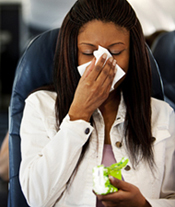Can Sinusitis Be Prevented?
There are no methods that have been scientifically proven to prevent acute or chronic sinusitis. Your healthcare professional may recommend the following measures that can help:
- Keep your nose as moist as possible with frequent use of saline sprays or washes.
- Avoid very dry indoor environments and use a humidifier, if necessary. Be aware, however, that a humid environment also may increase the amount of mold, dust mite, or cockroach allergens in your home; this is important only if you are allergic to any of those organisms.
- Avoid exposure to irritants such as cigarette and cigar smoke or strong odors from chemicals.
- Avoid exposure to substances to which you are allergic.
- If you haven’t been tested for allergies and you are getting frequent sinus infections, ask your healthcare professional to give you an allergy evaluation or refer you to an allergy specialist.
- Avoid long periods of swimming in pools treated with chlorine, which can irritate the lining of the nose and sinuses.
- Avoid water diving, which forces water into the sinuses from the nasal passages.

Air travel may pose a problem if you suffer from acute or chronic sinusitis. When air pressure in a plane is reduced, pressure can build up in your head, blocking your sinuses or the eustachian tubes (the airways between the middle ear and the back of the throat that equalize air pressure on either side of the eardrum). As a result, you might feel discomfort in your sinuses or middle ear during the plane’s ascent or descent. Some health experts recommend using decongestant nose drops or sprays before a flight to avoid this problem.